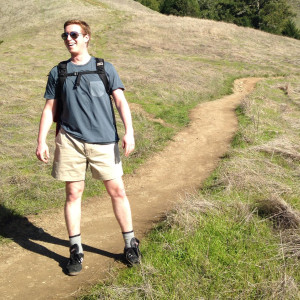
Contributed by Staff of Timberline Knolls
It is difficult to overcome drug abuse and find a passion for life again. Particularly, if drug abuse has been chronic and long-standing.
Two categories of drugs exist in the world today: the first are used to restore and maintain health or sustain life, whereas the second category involves getting high, coping with the challenges of life, altering one’s universe and reality.
On the street, the latter are known in terms of meth, cocaine, heroin, etc. In the pharmacy, they possess legal and legitimate names such as Adderall, Valium and OxyContin.
Whilst the first group is there to help, the second group often leads to chronic drug abuse and the eventual disintegration of any semblance of a normal life. As recreational use turns into addiction, the user is robbed of his identity, relationships, passion for life, health, hope and, importantly, the future.
Sobriety Isn’t Enough after Stopping Chronic Drug Abuse
 Separating an individual from their drug of choice is only half the goal in treatment. An identity and purpose are every person’s basic necessities. Prior to entering treatment, both were fairly clear: The person was an addict and their exclusive purpose in life was to sustain the status quo. Because sobriety creates a vacuum, therapy must work toward encouraging the person to feel good about themselves as well as restoring a desire to live.
Separating an individual from their drug of choice is only half the goal in treatment. An identity and purpose are every person’s basic necessities. Prior to entering treatment, both were fairly clear: The person was an addict and their exclusive purpose in life was to sustain the status quo. Because sobriety creates a vacuum, therapy must work toward encouraging the person to feel good about themselves as well as restoring a desire to live.
Learning and embracing the 12 steps of recovery is an extremely important aspect of positive self-acceptance. Understanding the lack of control over chronic drug abuse of a substance and surrendering to a higher power doesn’t abdicate power, it reinstates it.
The person learns to forgive others as well as themselves, which releases them from the binds of addiction and leads them into new-found acceptance and freedom. This freedom serves as a building block for the successful reintegration into normal life and formulating healthy relationships in the future.
Finding your Passion
As life moves toward more positive outlets, there is the availability of time and space for passion and healthy interests in life. Finding your passion involves more than just thinking about your interests, it is more dependent upon engagement and action.
Carry out a brainstorm session and write down your potential interests and passions. Identify your strengths and weaknesses, digging deeper into comprehending your core personality.
Once you have identified your passion, delve deeper into it by reading and researching about it. If you find yourself not getting tired of this, then take it as a good sign that you are on the right track. Reach out and associate to individuals who share your interest.
As you move forward, learn to move past your fear, doubts and hesitations. Even though it is impulsive to judge the worthiness of your passion in face of the first failure or hurdle, push deeper to evaluate and value the feeling it elicits in your heart.
Furthermore, passion and success are interrelated. Passion is part of the brain’s reward pathway and can be considered more a survival mechanism. If you are succeeding at your passion, it fuels your excitement and validates the basis of your passion. What’s important to realize is that success is not instantaneous. Any incremental improvement can be deemed a success.
Which Methods Should Be Involved In The Recovery of Chronic Drug Abuse?
Dialectical Behavior Therapy (DBT) is a renowned treatment option that not only offers the individual important recovery skills and tools but gives them a new vision for the future. At the very core of DBT is the concept of living a meaningful life. This is specific to the individual. Whereas one might define a meaningful life as being a good parent, another might view it as honoring an innate talent and becoming an artist.
It is important to establish early on in treatment what a meaningful life looks like to each resident. As they move into recovery, we encourage every person to hold each future decision up to this standard.
Often, what can help to reignite a passion for life is the simple question, “What were you passionate about before you became involved with substances?” It could be as seemingly minor as hiking in the wilderness or playing soccer. Or, it could be as multi-layered as the desire to be a veterinarian.
A dependence on drugs officially ends such activities or dreams, but once physical health is regained, hiking and soccer are certainly feasible.
Many Paths to Recovery from Drug Addiction
 Additionally, those in recovery must understand that there is not only one path to achieving a goal. A person may erroneously believe that she cannot be a vet now because she did not immediately enter college after high school. She did not “miss her chance.” It is merely delayed.
Additionally, those in recovery must understand that there is not only one path to achieving a goal. A person may erroneously believe that she cannot be a vet now because she did not immediately enter college after high school. She did not “miss her chance.” It is merely delayed.
Once addiction treatment is concluded, individuals must incorporate the tools they acquired in rehab in order to rebuild their life. Finding your passion is part of this process. If using drug and alcohol could be categorized as your old passion, then now it is time to move on and unearth a new avenue for your time and energy.
Achieving sobriety, practicing forgiveness, building positive relationships, pursuing a dream: All of these are important indicators of a positive future. However, establishing and sustaining a true passion for life is typically associated with spirituality.
Reaching Out To a Higher Power
Connecting to a higher power, whether it is God or the universe, provides those in recovery with an entity that can be trusted. Often, this is the first trustworthy and non-judgmental relationship they have ever been part of. Additionally, walking in the firm belief that there is a higher power that truly loves, provides guidance and hope for the future is huge. Then, these individuals are not alone in their struggle.
Passion is powerful tool in recovery because this will help restore the self-confidence that addiction destroyed. Regardless of how long a person has been involved with drugs, recovery is possible. What’s more, with a newfound identity and purpose, recovery tools and support, and especially a relationship with a higher power that offers love, hope, and forgiveness, true passion for life is more than possible.
References
Finding Passion in Addiction Recovery. (2018, June 28). Retrieved from https://addictionfree.com/addiction-blog/finding-passion-in-addiction-recovery
Thank you to Timberline Knolls for providing this article.

(Advertisement)
Timberline Knolls is a leading residential treatment center for women and adolescent girls, ages 12 and older, with eating disorders, substance abuse, trauma, mood and co-occurring disorders. Located in suburban Chicago, residents receive excellent clinical care from a highly trained professional staff on a picturesque 43-acre wooded campus. An adult partial hospitalization program (PHP) is also available in nearby Orland Park, Ill., for women to step down or direct admit. For more information on Timberline Knolls Residential Treatment Center, call 630-755-5173. We are also on Facebook – Timberline Knolls, LinkedIn – Timberline Knolls and Twitter – @TimberlineToday.
The opinions and views of our guest contributors are shared to provide a broad perspective of addictions. These are not necessarily the views of Addiction Hope, but an effort to offer a discussion of various issues by different concerned individuals.
We at Addiction Hope understand that addictions result from multiple physical, emotional, environmental, and genetic factors. If you or a loved one are suffering from an addiction, please know that there is hope for you, and seek immediate professional help.
Published on July 30, 2019
Reviewed and Updated by Jacquelyn Ekern, MS, LPC on January 12, 2021
Published on AddictionHope.com
